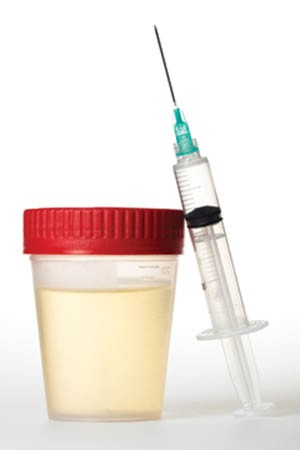As Pennsylvania prepares to drug-test some welfare and food-stamp recipients, it's not clear if the move will bring the savings promised by legislators.
State lawmakers passed a budget committed to making $400 million in cuts at the Department of Public Welfare. As part of that mandate, they passed Act 22, requiring drug testing for recipients of food stamps, welfare, state general assistance or state supplementary payments who have been convicted of a drug felony within the past five years. Every six months, 20 percent of that group will be tested at random.
Republican legislators who promoted the bill earlier this year said it would prevent waste, fraud and abuse in the welfare system. A spokesman for House Majority Leader Mike Turzai (R-Bradford Woods) did not respond to several queries from City Paper about the specifics of the bill.
But as City Paper reported in April, many advocates for low-income people saw this legislation not as targeting welfare fraud, but aiming to discourage people from applying for assistance.
"There's no evidence that this will save any money," says Ken Regal, co-director of Just Harvest, a Pittsburgh anti-poverty group. Furthermore, he points out, any potential savings from denying benefits wouldn't even be realized by the state, because food stamps and welfare are both federally funded programs.
The state does pay a portion of the administrative costs for these programs, however, and those costs would increase with drug testing. According to a state fiscal note that accompanied the bill, estimated annual state costs would total $728,000 for drug tests and 10 related full-time positions, offset by an estimated $536,000 in savings -- or an annual cost of $192,000 to the state. Regal, however, questions the number, in part because he believes it overestimates the number of people with felony drug convictions currently receiving assistance.
In addition, drug testing in other states is not yielding the results that legislators have promised. Florida, for example, began testing all welfare recipients for drugs in July. So far, 96 percent tested drug-free, the Tampa Tribune reported last month. The Tribune calculated the money saved on rejected applicants would be less than $100,000 for the fiscal year. The annual testing costs are $178 million.
While Florida's law is much broader than Pennsylvania's approach, it's not clear the Keystone state's method makes sense, either. Targeting felons with previous drug-related convictions, but only randomly testing 20 percent of this group, seems like a "mish-mash" approach that is sort of targeted yet arbitrary, said Liz Schott, a senior fellow for think tank The Center on Budget and Policy Priorities.
"There are already lots of safeguards in place in Pennsylvania to prevent people from misusing welfare funds," says Amy Hirsch, a managing attorney at Community Legal Services, of Philadelphia. For example, individuals who fail to appear at criminal-court proceedings when issued a summons are disqualified from getting benefits until they comply. If the DPW determines someone has a substance-abuse problem that is a barrier to employment, they must complete treatment and periodically test drug-free.
Carey Miller, a DPW spokeswoman, was unable to give a timeline for when Pennsylvania would begin implementing the testing, how many people it will impact, or how much money it might save or cost.
Depending on DPW's approach, "We're definitely looking at the law," said Mary Catherine Roper, a staff attorney at the ACLU of Pennsylvania. "It's something that concerns us.
"Applying for benefits doesn't make you a criminal. It shouldn't mean you are treated like one."


